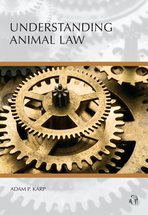Results
| Title | Citation | Alternate Citation | Agency Citation | Summary | Type |
|---|---|---|---|---|---|
| Irwin v. Degtiarov | 85 Mass.App.Ct. 234 (2014) | 8 N.E.3d 296 (2014) | In this case, Degtiarov's unleashed dog attacked Irwin's dog without provocation. Though Irwin's dog survived, there were significant veterinary costs. Irwin brought this suit for damages in the form of veterinary costs, which were granted by the district court and affirmed by the appellate court. The sole issue on appeal considers whether damages should be capped at the market value of the dog, despite the reasonableness of the veterinary costs necessary to treat the dog's injuries. The appellate court affirms the damages for reasonable veterinary costs that were incurred for damage caused by a dog, even if these costs exceed the market or replacement value of the animal injured by the dog. | Case | |
| VA - Rabies - § 3.2-6525. Regulations to prevent spread of rabies | Va. Code Ann. § 3.2-6525 | VA ST § 3.2-6525 | This Virginia statute provides that the governing body of any county, city or town may adopt such ordinances, regulations or other measures as may be deemed reasonably necessary to prevent the spread within its boundaries of the disease of rabies, and to regulate and control the running at large within its boundaries of vicious or destructive dogs. Penalties may be provided for the violation of any such ordinances. The governing body of any county that has adopted the urban county executive form of government may adopt an ordinance creating a program for the distribution of oral rabies vaccine within its boundaries to prevent the spread of rabies. | Statute | |
| VA - Education - § 22.1-200.01. Alternatives to animal dissection | VA Code Ann. § 22.1-200.01 | VA ST § 22.1-200.01 | This Virginia law states that local school divisions shall provide students with alternatives to animal dissection techniques. The Board of Education shall establish guidelines to be implemented by local school divisions regarding such alternative dissection techniques. In addition, those guidelines must provide notification to students and parents of the option to decline participation in animal dissection. | Statute | |
| Understanding Animal Law |
|
Policy | |||
| US - Assistance animals, housing - Subpart D. Prohibition Against Discrimination Because of Handicap. | 24 C.F.R. § 100.201 - 205 | These regulations set out the definitions relating to housing discrimination under the Federal Fair Housing Act. | Administrative | ||
| Humane Society v. Merriam | 2007 WL 333309 (D.Minn.) |
Minnesota allowed trapping and snaring activities. Plaintiffs sued the state, arguing that this policy was causing the death of some endangered Canada lynx, in violation of the Endangered Species Act. The plaintiffs and defendants had the case dismissed after they agreed that Minnesota would seek a permit from the Fish and Wildlife Service under the Endangered Species Act, and that conservation measures would be taken for the protection of the lynx. |
Case | ||
| CITY OF TOLEDO, Appellant, v. Paul TELLINGS, Appellee. |
This is the City of Toldeo's Appellant Brief filed in the Supreme Court case of Toledo v. Tellings (871 N.E.2d 1152 (2007)). The Supreme Court reversed the Court of Appeals decision, finding that the state and the city have a legitimate interest in protecting citizens against unsafe conditions caused by pit bulls. |
Pleading | |||
| NJ - Impound - Chapter 19. Dogs, Taxation and Liability for Injuries Caused by. | NJSA 4:19-9 | NJ ST 4:19-9 | This New Jersey statute provides that a person may humanely destroy a dog in self defense, or which is found chasing, worrying, wounding or destroying any sheep, lamb, poultry or domestic animal. | Statute | |
| Carbasho v. Musulin | 618 S.E.2d 368 (W. Va. 2005) |
Owner's dog was killed by a negligently driven car. The owner sued to recover damages for loss of companionship. The court held that dogs are personal property and damages for sentimental value, mental suffering, and emotional distress are not recoverable. |
Case | ||
| MA - Fur, labeling - Chapter 94. Inspection and Sale of Food, Drugs and Various Articles. | M.G.L.A. 94 § 277A | MA ST 94 § 277A | This law represents Massachusetts' fur labelling law. Under the law, all natural, dyed or imitation furs, and all articles made wholly or partly therefrom, sold at retail within the commonwealth, shall be plainly marked or labelled with an accurate statement of the material which they contain, together with the name and address of the seller. Whoever violates any provision of this section shall be punished by a fine of not more than two hundred dollars. | Statute |
